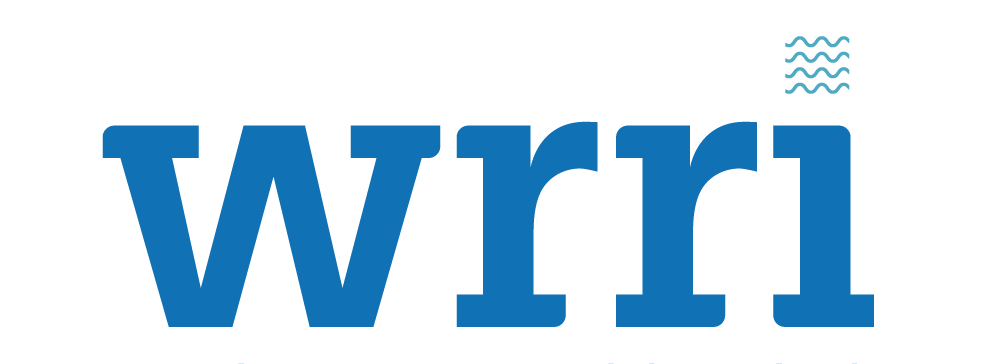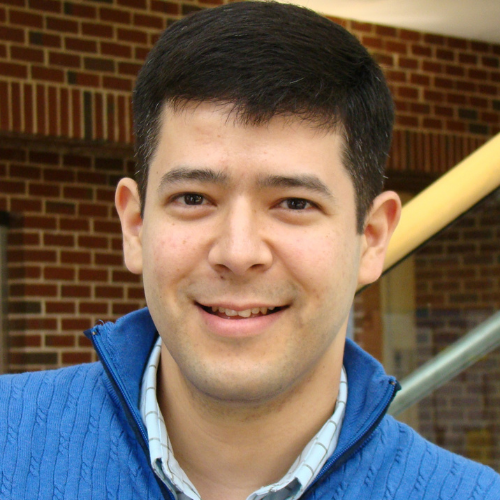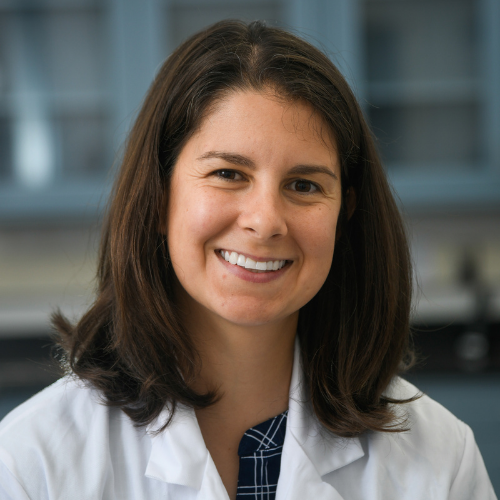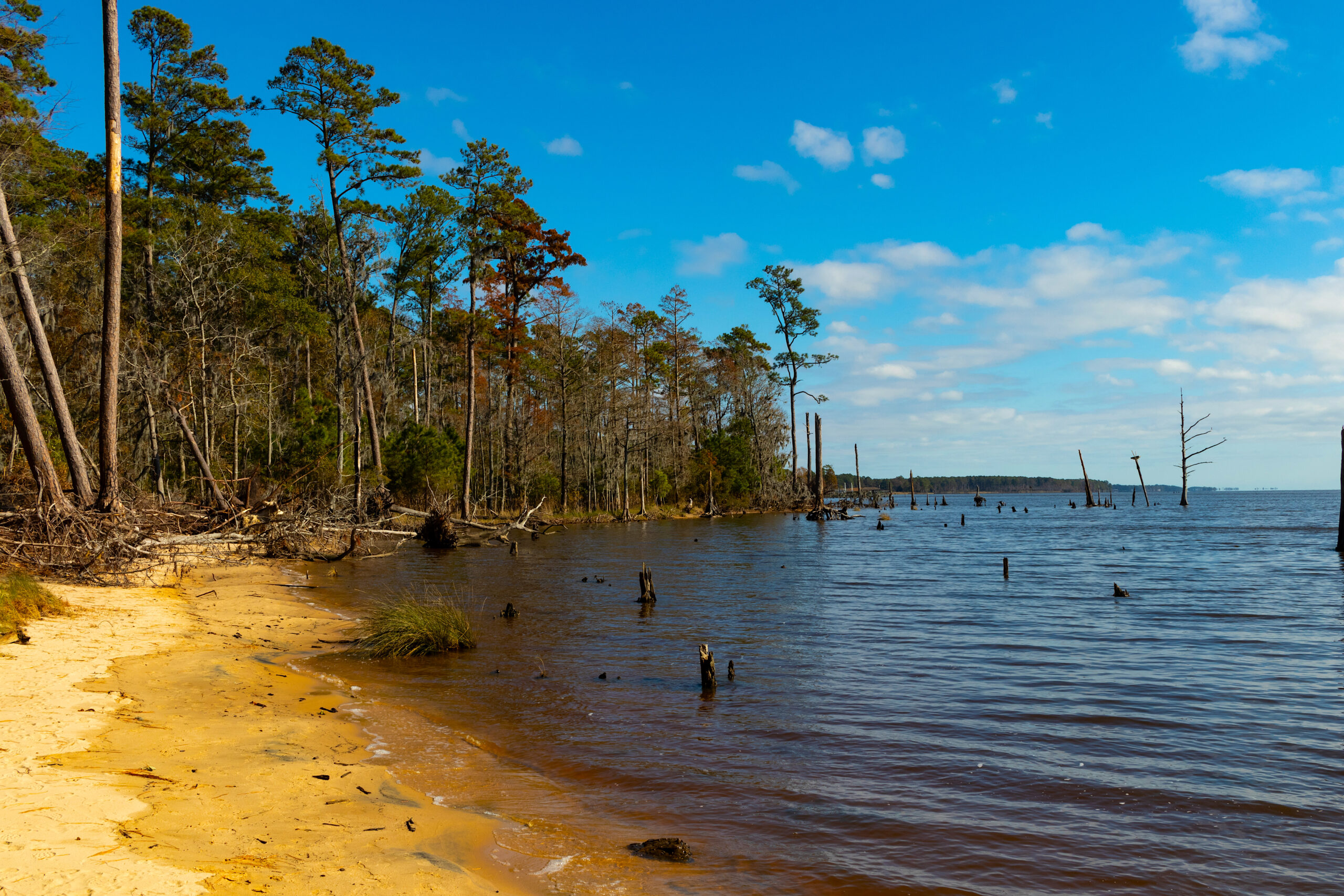WRRI’s 2021 Faculty Researchers Announced

North Carolina’s Water Resource Research Institute is pleased to announce funded faculty researchers for 2021. This annual request for proposals is jointly supported by the North Carolina Water Resources Research Institute and the U.S. Geological Survey (USGS). The researchers are investigating a wide range of topics, including non-point source pollution management, drinking water, wastewater, water infrastructure, as well as ground and surface water.
“NC-WRRI is pleased to continue supporting groundbreaking research tackling our state’s grand water challenges,” says John Fear, NC WRRI’s deputy director.
The researchers are from North Carolina State University, University of North Carolina at Chapel Hill, University of North Carolina at Charlotte, Duke University and Western Carolina University.
WRRI-USGS Funding
The Water Resources Research Institute is a federal-state partnership with funding through the U.S. Geological Survey in the U.S. Department of the Interior. The National Institutes for Water Resources partner with the U.S. Geological Survey in addressing water-related concerns by platform for activities such as research.
The faculty researchers receiving WRRI-USGS funding are:
Orlando Coronell (with Co-Principal Investigator Frank Albert Leibfarth), University of North Carolina at Chapel Hill
“Performance Evaluation of Novel Resins in Flow-Through Columns for PFAS removal from Drinking Water and Treated Wastewater”
This project will focus on developing optimized PFAS removal technology by studying the relevance of ionic fluorogel (IF) resins as a possible effective method to remove PFAS from water. IF resins combine ionic and fluorous interactions to target and remove PFAS from water, selectively, over background contaminants.
Angela Harris (with Co-Principal Investigators Ryan Emanuel and Daniel Obenour), North Carolina State University
“Fecal Contamination Source Tracking and Forecasting to Support Recreational and Cultural Development in the Black River Watershed”
This project focuses on the Great Coharie River in Eastern North Carolina, working with Coharie Tribe leaders and community members to support the development of long-term water quality monitoring plans and decision-making for using the river. By sampling from four sites along the river in different seasons and conditions, the project will develop forecast models to predict river contamination by nutrients, E. coli and fecal contamination.

Lauren Patterson (with Co-Principal Investigators Kyle Onda and Ashley Ward), Duke University
“Enabling Water Utilities to Create, Transfer Information and Use Digital Service Area Boundaries”
This project will assist water and wastewater utilities to create and sustain digital service area boundaries by developing an open-source and free technology called A Boundary Update Tool for Utility Services (ABOUT-US), which will enable utilities – especially those limited in resources – to fulfill reporting requirements and provide the State with regional and statewide planning support. In addition, this project will work with utilities to develop online tools that link climate, sociodemographic, environmental and other critical data to better equip utilities to meet their needs and enhance their capacity for emergency, mitigation and resilience planning.
Caren Cooper (with Co-Principal Investigators Emily Berglund and Valerie Ann Johnson), North Carolina State University
“A Citizen Science Internship Program to Quantify Racial and Economic Disparities in Lead Levels in Drinking Water Across North Carolina”
This project will create a Citizen Science internship program at Shaw University to extend the reach of the US EPA-funded project, Crowd the Tap. The purpose of the internship program is to employ students to carry out direct outreach to priority communities in NC that are dealing with leaded drinking water infrastructure, assist in meeting several of the proposed Lead and Copper Rule revisions, as well as fill in any data gaps to create a statistical model that can predict the household risk of lead.
Keith Gibbs (with Co-Principal Investigators Diane Styers and Thomas Martin), Western Carolina University
“Developing a Watershed Prioritization Index to Guide Restoration Initiatives in the Upper Little Tennessee River Basin”
This project will focus on the Upper Little Tennessee River Basin and several subwatersheds in the basin to assess risks to water quality while trying to link land cover changes in the area to water quality and aquatic life. Subwatersheds will be ranked based on susceptibility to sedimentation, and the project’s results will be shared with partners to assist in future monitoring and restoration efforts of the river basin.
WRRI Funding
The faculty researcher receiving WRRI funding is:

Erin Baker (with Co-Principal Investigators Detlef Knappe and Catherine LePrevost), North Carolina State University
“Novel mass spectrometry approaches for the identification of pesticides and per- and polyfluoroalkyl substances in North Carolina drinking water sources”
This project will rapidly analyze the water quality of private wells using an innovative combination of liquid chromatography (LC), ion mobility spectrometry (IMS) and mass spectrometry (MS). The combination is meant to replace the time-sensitive sample preparation and chromatographic separation steps and will target emerging organic contaminants like PFAS, pesticides, and pesticide degradation byproducts, to benefit future evaluation of organic contaminants in water.
Urban Water Consortium Funding
The UWC comprises 12 of North Carolina’s largest water/wastewater utilities. The consortium is administered by WRRI in partnership with voting representatives from each member utility, and activities are guided by a set of operating procedures. The UWC was established in 1985 to provide a program of research and development, and technology transfer on water resources issues shared by urban areas and water utilities across the state.
The faculty researcher receiving UWC funding is:
Mei Sun, University of North Carolina at Charlotte
“Heat-Activated Persulfate Regeneration of Ion Exchange Resins for Per- and Polyfluoroalkyl Substance Treatment”
This project aims to develop chemical treatment methods to destruct PFAS in resins. Some water treatment plants use ion exchange resins to remove PFAS from contaminated drinking water, but the exhausted resins rich in PFAS may become a new contamination source. Successful implementation of the project will enable PFAS removal from drinking water, reduce waste disposal expense of water utilities, lower the risks of transferring PFAS contamination from one environmental compartment to another, and ultimately protect human health and the environment.
Stormwater Consortium Funding
The Stormwater Consortium (SWC), formed in 1998 and originally called the Stormwater Group, is a subgroup of the Urban Water Consortium (UWC) consisting of the nine municipal UWC members that also have municipal stormwater programs. This group sponsors research and technology transfer on urban stormwater and management issues.
The faculty researcher receiving SWC funding is:
Nicole Barclay (with Co-Principal Investigator Michael Smith), University of North Carolina at Charlotte
“Data-Driven Analytics Tools to Support Prioritized Management of Stormwater Infrastructure”
This project will focus on the aging stormwater infrastructure problem troubling communities across the state of North Carolina, by developing novel data-driven models to be used for predicting the conditions and increased risks facing stormwater infrastructure. Outcomes from this project will be used to improve decision-making regarding asset management of stormwater infrastructure, to effectively allocate and prioritize resources for adequate repair and replacement of deteriorating infrastructure.
Find more information about this and other funding opportunities on the WRRI funding page.
- Categories:









